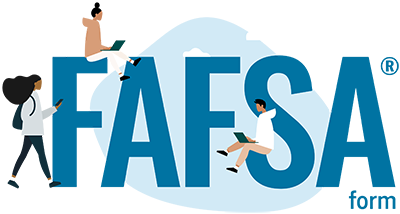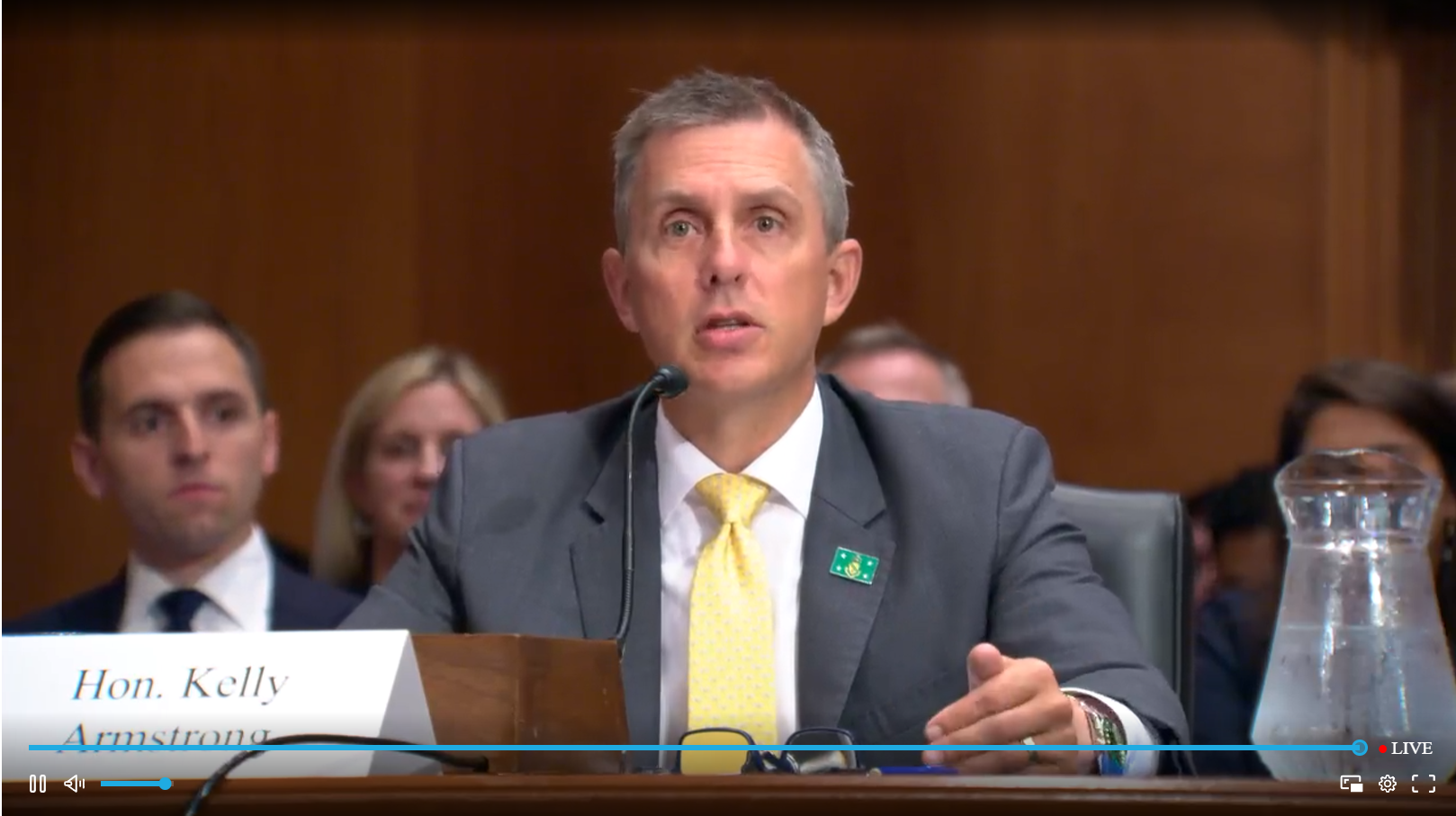Governors across the country are committed to providing meaningful, accessible, and affordable postsecondary pathways to residents of their state. This includes providing robust state-based aid programs and quality counseling and advising to support students in choosing the right path. Federal student aid programs help supplement existing state-based aid programs and provide the opportunity, particularly for low-income students, to access these pathways. Completion of the Free Application for Federal Student Aid (FAFSA) is the first step a student must take to determine their eligibility for numerous federal, state, and institutional aid and scholarship programs.

Though the FAFSA is a gateway to financial aid for postsecondary education, the complexity of the FAFSA has historically been a barrier to completion to many students and families who would qualify for aid. To remove that barrier and streamline the application process, Congress passed the FAFSA Simplification Act at the end of 2020, which included the redesign of the FAFSA form that the U.S. Department of Education (The Department) launched December 31, 2023.
The Department’s new “Better FAFSA” is intended to shorten the length of the application and expand access to aid programs like the Pell Grant, while providing tools and information to assist families in its completion. Those benefits, however, have been overshadowed by numerous rollout delays and glitches, leaving Governors concerned about FAFSA completion rates in their state and territory and scrambling to meet the financial aid needs of both current and prospective postsecondary students.
Since the current FAFSA process has been delayed, FAFSA completion has declined and there is a concern that postsecondary enrollment will see an unexpected drop, at a time when nation-wide enrollment trends continue to tick downward. According to the National College Attainment Network (NCAN), since the launch of the “Better FAFSA” completion by high school seniors has declined by nearly 40% relative to this time last year. At this rate, postsecondary enrollment is on track to decrease as well – at a time when Governors are still recovering from enrollment declines following the COVID-19 pandemic.
To mitigate the impacts of the delay, Governors across the political spectrum have stepped in to provide support for students in their state. Across the board, they are preparing for the consequences of the FAFSA delays by providing maximum flexibility in deadlines, increasing communication and information sharing, and focusing outreach efforts with a more hands-on approach in FAFSA completion.
Addressing FAFSA deadlines (institutional and state aid/scholarship deadlines)
The federal deadline for the FAFSA is on June 30 each year; however, states and colleges typically set an earlier spring deadline because they have limited funds to disperse to students whose out-of-pocket costs are not met by the Pell Grant. With the delayed rollout of the FAFSA, coupled with the changes to student aid calculations, states are extending their financial aid deadlines, so students won’t miss out on those funds. Additionally, many states have extended their FAFSA deadlines for state and institutional aid through the summer of 2024 with the hopes of higher completion rates.
- In Idaho, the Office of the State Board of Education moved the application deadline for the Idaho Opportunity Scholarship from March 1, 2024 to March 31, 2024.
- The Maryland Higher Education Commission moved the FAFSA and state aid program deadlines from March 15, 2024 to May 15, 2024.
- Massachusetts Governor Maura Healey announced that the state’s priority deadline to apply for Massachusetts financial aid via MASSGrant has been extended from May 1, 2024 to July 1, 2024. Additionally, Governor Healey announced grants will be provided to more than 100 Massachusetts public schools serving Gateway Cities to help high school seniors complete the FAFSA.
- In Mississippi, the state’s aid application, the Mississippi Aid Application, deadline remained March 31, 2024. However, low-income students were given an extension to complete the FAFSA by June 30, 2024 to confirm their family income.
- The Missouri Department of Higher Education and Workforce Development extended the deadline for the Access Missouri Grant a second time to June 1, 2024. This is in response to low filing rates and after originally extending the deadline from February 1, 2024 to April 1, 2024.
- In Ohio, the Department of Education and Workforce released a statement, urging Ohio colleges and universities to consider pushing back application and acceptance deadlines to allow students to have more time to complete the FAFSA, understand their financial aid, and make decisions about their higher education.
- The Texas Higher Education Coordinating Board delayed the state financial aid application deadline to April 15, 2024. Originally, the state aid application was due in January.
- In West Virginia, the state Higher Education Policy Commission pushed back the deadlines for both the Promise Scholarship and the state Higher Education Grant to May 1, 2024. Normally, the applications are due March 1 and April 15, respectively.
“Now is the time to ensure the high school seniors and college students in your life have completed their FAFSA.”
Missouri Governor Mike Parson
Communication/Information Sharing
Many students and families remain unaware of the changes to the FAFSA and are subsequently surprised and discouraged from completing it once they begin the process. To combat this, some Governors have instituted communication strategies and other information sharing campaigns that raise awareness around the FAFSA and encourage its completion before the end of the 2023 – 2024 school year.
- In Arizona, Governor Katie Hobbs announced the “Finish Line to the FAFSA” month in tandem with sending letters to local school leaders, encouraging the completion of FAFSA.
- In Tennessee, the Tennessee Higher Education Commission and Tennessee Student Assistance Corporation worked together to launch the “Finish the New FAFSA Week” campaign. This effort encourages students and their families to complete the FAFSA, while providing resources to streamline the process.
- In Colorado, Governor Jared Polis promoted completing the FAFSA during “FAFSA Week of Action”, urging students and families to fill out the application.
- North Dakota Governor Doug Burgum issued a proclamation for “Finish the FAFSA Week” to encourage students to unlock financial aid opportunities.
“The Finish Line to the FAFSA campaign is calling on our community to work together to raise awareness about the FAFSA, organize events, and provide support to Arizona high schools and graduating seniors.”
Arizona Governor Katie Hobbs
Community Outreach Efforts
Acknowledging the time consuming and at times challenging process of completing the FAFSA, some Governors have taken a more hands-on approach to increasing the number of students and families completing applications.
- In Kentucky, the Kentucky Higher Education Assistance Authority (KHEAA) hosted a FAFSAthon where volunteers answered phone calls, texts and in-person inquires regarding FAFSA completion. The event was paid for using FAFSA Support Funds from the U.S. Education Department and the Educational Credit Management Corporation.
- In Michigan, Governor Gretchen Whitmer’s Department of Lifelong Education, Advancement, and Potential partnered with Lt. Governor Garlin Gilchrist to launch an initiative that would motivate students to complete the FAFSA with the potential opportunity to win a year’s supply of pizza. Called the “Reach for the Pie” contest, 100 students have the chance to win a prize.
- In New York, Governor Kathy Hochul announced that letters would be distributed to high school seniors and principals with resources and tips for completion. She also declared April 2024 Financial Aid Awareness month, highlighting events throughout the state aimed to help students and parents with the process in a continued effort to bolster FAFSA completion.
“Far too often, students and families miss out on the full scope of financial aid opportunities available to them, causing many to miss out on this critical support. We’re bridging the information gap and providing students with the resources they need to complete their FAFSA application and unlock financial aid opportunities that can support their higher education journey.”
New York Governor Kathy Hochul
Expanding Resources
The new FAFSA application has a number of changes and potentially new challenges for families that slows their completion. In response to these issues, states are responding with additional resources and support.
- In Delaware, the Department of Education has partnered with Stand By Me, a joint project of the State of Delaware and the United Way of Delaware, to provide additional financial aid support. They have also extended scholarship deadlines.
- In Rhode Island, the Rhode Island Student Loan Authority’s (RISLA) College Planning Center is providing support services to any students struggling to complete the FAFSA. Additionally, Governor Dan McKee raised awareness on the importance of completing the FAFSA by attending RISLA’s FAFSA Completion Event.
“Applying for the FAFSA is the gateway to qualifying for grants, work-study funds and federal student loans, as well as certain state-based aid to pay for college and career training programs.”
North Dakota Governor Doug Burgum
Governors are confronting the decline in FAFSA completion and the pressure on state aid by providing additional support to students and their families to ensure they can access financial resources for postsecondary education. Despite the difficult revamp, the FAFSA remains the pathway to aid for college for millions of students, and while the federal government continues to improve the FAFSA form and application process, Governors will continue to take thoughtful actions in support of students and their families.












